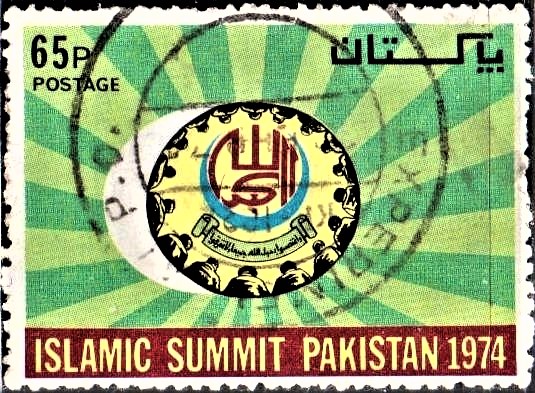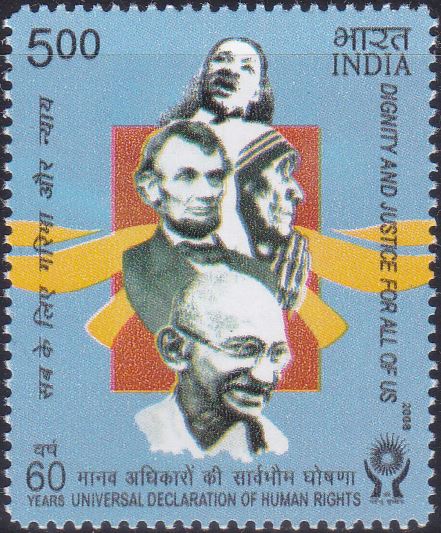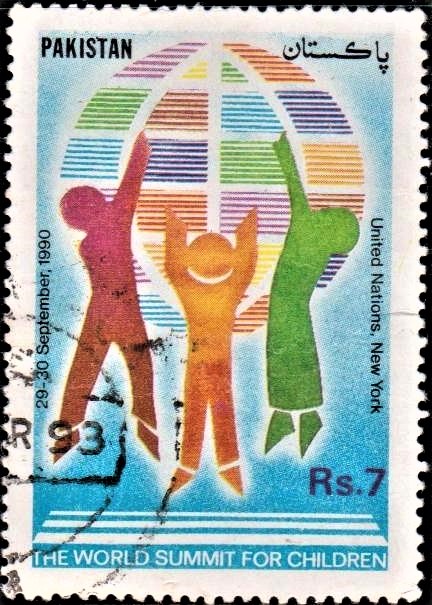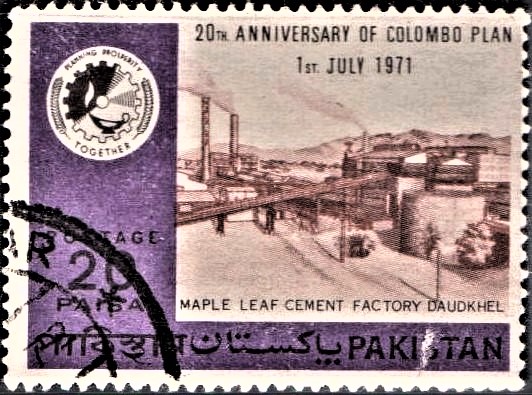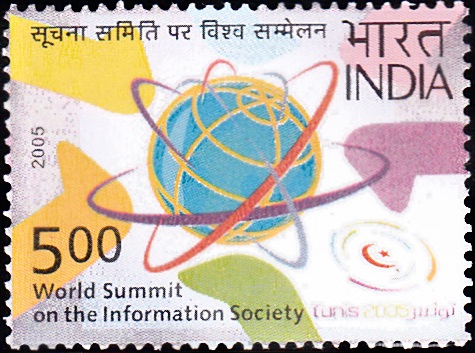
World Summit on the Information Society 2005
A commemorative postage stamp on the UN World Summit on the Information Society (WSIS), Tunis :
Issued on Nov 17, 2005
Issued for : India Post is pleased to issue a postage stamp to commemorate the World Summit on the Information Society, Tunis, 2005.
Credits :
Design of Stamp & First Day Cover : Kamleshwar Singh
Cancellation Design : Alka Sharma
Type : Stamp, Mint Condition
Colour : Multicolour
Denomination : 500 Paisa
Stamps Printed : 0.6 Million
Printing Process : Photogravure
Printer : India Security Press, Nashik
About :
- The digital revolution in information and communication technologies has created the platform for a free flow of information, ideas and knowledge across the globe. This revolution has made a profound impression on the way the world functions and is critical to both the developed world as a business and social tool and the developing world as a passport to equitable participation, as well as economic, social and educational development.
- World Summit on the Information Society (WSIS) is a formal United Nations Summit at the level of Heads of State and Government. It is the result of an initiative by the International Telecommunications Union (ITU) further endorsed by the United Nation’s General Assembly (Resolution 56/1983) in 2001. Its aim is to develop a common vision and understanding of the Global Information Society and to draw up a strategic Plan of Action for concerted development towards realizing this vision. The purpose of the World Summit on the Information Society is to ensure that these benefits are accessible to all while promoting specific advantages in areas such as e-strategies, e-commerce, e-health, education, literacy, cultural diversity, gender equality, sustainable development and environmental protection.
- The process is divided in two phases and the first phase of the summit was held in Geneva from 10 to 12 December 2003, where the foundations were laid by reaching agreement on a Declaration of Principles and a plan of action which form the basis for a global common approach towards the Information Society of all United Nations Member States where the Declaration of Principles presents a vision of Information and Communication Technologies (ICTs). At WSIS Geneva in December 2003, World leaders declared “our common desire and commitment to build a people-centred, inclusive and development-oriented Information Society, where everyone can create, access, utilize and share information and knowledge, enabling individuals, communities and peoples to achieve their full potential in promoting their sustainable development and improving their quality of life, premised on the purposes and principles of the Charter of the United Nations and respecting fully and upholding the Universal Declaration of Human Rights”.
- The Road to Tunis entails a process of monitoring and evaluation of the progress of feasible actions laid out in the Geneva Plan and a concrete set of deliverables that must be achieved by the time the Summit meets again in Tunis on 16 to 18 November 2005. Efforts are now being made to put the Plan of Action into motion and working groups are being set up to find solutions and reach agreements in the fields of Internet governance and financing mechanisms.
- United Nations Summits have been held on a variety of issues that have commanded the attention of the world, including the pioneering World Summit for Children (1990), the Earth Summit on Environment and Development (Rio de Janeiro, 1992), the World Conference on Human Rights (Vienna, 1993), the International Conference on Population and Development (Cairo, 1994), the World Summit for Social Development (Copenhagen, 1995), the International Conference on Women (Beijing, 1995), and the Financing for Development Conference (Monterrey, Mexico, 2002). The Millennium Summit (New York, 2000) brought together world leaders in a unique display of solidarity to achieve far-reaching development goals by 2015.
- The objective of the WSIS is to effectively assist the United Nations in fulfilling the goals of the Millennium Declaration. The ultimate objective is to turn the vision of an inclusive and equitable Information Society into reality. This is only possible when the digital revolution is harnessed into extending the frontiers of the global village as well as facilitating the free flow of knowledge and information for economic and social development.
Subscribe
Login
0 Comments
Oldest



